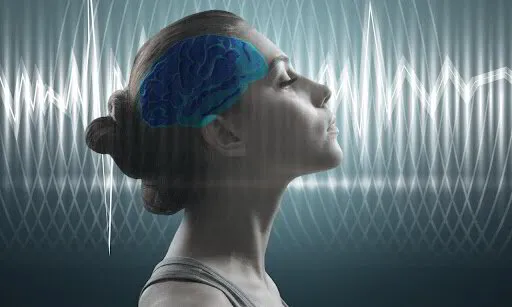Introduction
Music - a universal language that surpasses words, cultures, and even time. Its power to evoke emotions, memories, and movement is undeniable. But did you know that music can also be a powerful tool for healing and well-being? That's where music therapy comes in!
A practice that harnesses the profound impact of music to promote physical, emotional, and cognitive well-being.
Music therapy offers a unique and impactful approach to healthcare. In this blog, we'll delve into the magic of music therapy, exploring its benefits, applications, and the science behind its effectiveness. We'll also provide practical tips to incorporate music into your daily life for a touch of musical healing.
Understanding Music Therapy
Music therapy is the clinical use of music interventions to address various physical, emotional, and cognitive needs. Music therapists, who are trained professionals with expertise in both music and healthcare, design individualised music-based programs to achieve specific therapeutic goals. These programs can involve singing, playing instruments, listening to music, or even improvising musical creations.
- Reduced stress and anxiety : Music has a calming effect on the nervous system, lowering cortisol levels and promoting relaxation.
- Improved mood and depression : Upbeat music can lift spirits and boost positive emotions, while music therapy interventions can help manage symptoms of depression.
- Enhanced communication and social skills : Music provides a safe and non-threatening platform for self-expression and communication, particularly for individuals with disabilities or limited verbal skills.
- Pain management : Music can distract from pain and discomfort, making it a valuable tool for pain management in medical settings.
- Improved cognitive function : Music therapy can stimulate the brain and improve cognitive skills like memory, attention, and processing speed.
- Enhanced movement and coordination : Rhythmic music can motivate movement and improve motor skills, making it beneficial for physical rehabilitation and neurological conditions.
How Music Affects the Brain
- Neurological Impact : The relationship between music and the brain is intricate and fascinating. Numerous studies have demonstrated that engaging with music activates multiple regions of the brain, including those associated with emotions, memory, and motor skills. This comprehensive neurological activation makes music a powerful tool for addressing a variety of cognitive disorders and neurological conditions.
- Emotional Responses : Music has an unparalleled ability to evoke emotions, whether it's the uplifting crescendo of a symphony or the soothing melodies of a ballad. In a therapeutic context, music becomes a means of expressing and processing emotions that may be difficult to articulate verbally. It serves as a non-intrusive avenue for individuals to connect with and explore their feelings, fostering emotional well-being.
- Cognitive Benefits : The cognitive benefits of music engagement are vast, extending from enhanced concentration and memory to improved problem-solving skills. For individuals with conditions such as Alzheimer's or dementia, music can evoke memories and facilitate communication, offering a unique way to connect with their past and present.
Different Approaches to Music Therapy
Music therapy is not a one-size-fits-all approach. Therapists use various techniques tailored to individual needs and preferences. Some common approaches include:
- Receptive music therapy : Listening to pre-recorded music or live performances to evoke specific emotions or promote relaxation.
- Active music therapy : Engaging in musical activities like singing, playing instruments, or improvising music.
- Songwriting and music composition : Creating original music to express emotions, process experiences, and build self-confidence.
- Music and movement therapy : Combining music with physical movement to improve coordination, balance, and gait.
The Science Behind Music and Healing
The effectiveness of music therapy is backed by growing scientific evidence. Studies have shown that listening to music activates various areas of the brain, affecting emotions, movement, and cognitive function. Music can also trigger the release of hormones like dopamine and oxytocin, which promote feelings of pleasure and well-being.
Simple Ways to Incorporate Music into Your Life
- Create a Mood-Boosting Playlist : Put together a playlist with upbeat, feel-good tunes for those morning slumps or energising workouts. Conversely, curate calming nature sounds or classical pieces for unwinding after a long day.
- Sing Your Heart Out (Even in the Shower!) : Don't let shower curtains stifle your inner rockstar! Singing releases endorphins, reducing stress and boosting mood. Don't worry about hitting the right notes; just let the music flow freely.
- Dance Like Nobody's Watching : Let loose and dance! Whether it's a solo kitchen groove or a spontaneous living room disco, movement to music is a fantastic way to release pent-up energy and embrace joy.
- Embrace Nature's Symphony : Go on a nature walk, and listen to the rustling leaves and chirping birds. Immerse yourself in the calming sounds of the ocean or the rhythmic pattern of rain. Nature's music can be incredibly restorative.
- Use Music for Mindfulness : Incorporate music into your mindfulness practices. Focus on the sounds, the emotions it evokes, and how it interacts with your breath and body sensations. This can deepen your sense of calm and presence.
Remember, music is a gift - embrace it, explore it, and let it weave its magic into your life. By incorporating these simple tips, you can unlock the power of music for greater joy, relaxation, and a sense of well-being. So, turn up the volume, unleash your inner maestro, and let the music heal!
Challenges and Misconceptions
- Common Challenges Faced in Implementing Music Therapy : While the benefits of Music Therapy are substantial, there are challenges in its implementation. These may include limited accessibility, insufficient awareness, and misconceptions about the scope and effectiveness of Music Therapy. Addressing these challenges is crucial to ensuring that more individuals can benefit from this therapeutic practice.
- Debunking Myths Surrounding Music Therapy : Misconceptions about Music Therapy may deter individuals from exploring its potential benefits. It's essential to debunk myths and clarify that Music Therapy is not limited to specific musical genres or talents. It is an inclusive and adaptable practice that can be tailored to meet the unique needs of each individual.
Conclusion
In the Symphony of Life, we've explored the profound impact of Music Therapy. To dive deeper into this transformative realm, check out the "Value of Music Therapy" episode on HUM Zinger's Podcast on Spotify. Featuring Hilary MacAulay, an Accredited Music Therapist, this episode delves into the biological benefits of music on the brain. Discover how music therapy, as discussed by Hilary, can positively influence mental health, addiction, and various cognitive conditions. Don't miss the chance to explore the healing notes further - tune in and let the music speak to your soul.



